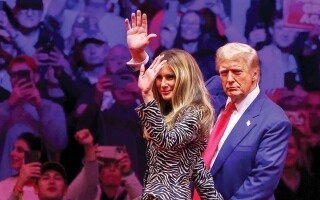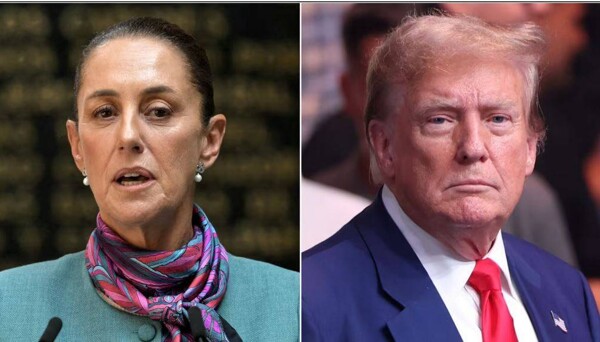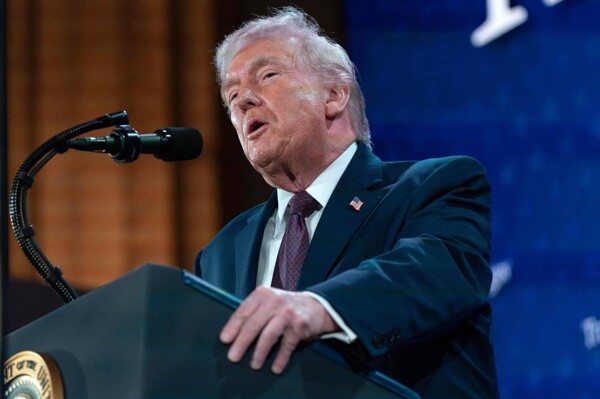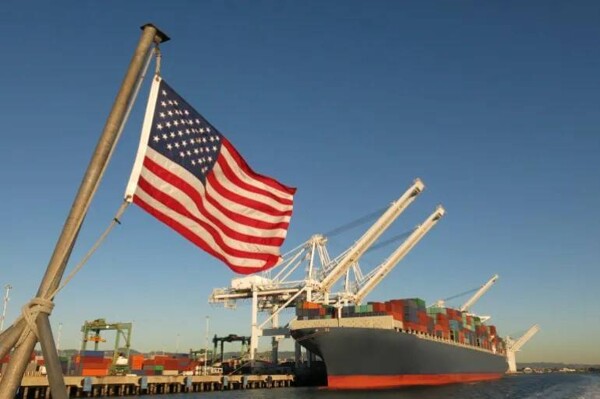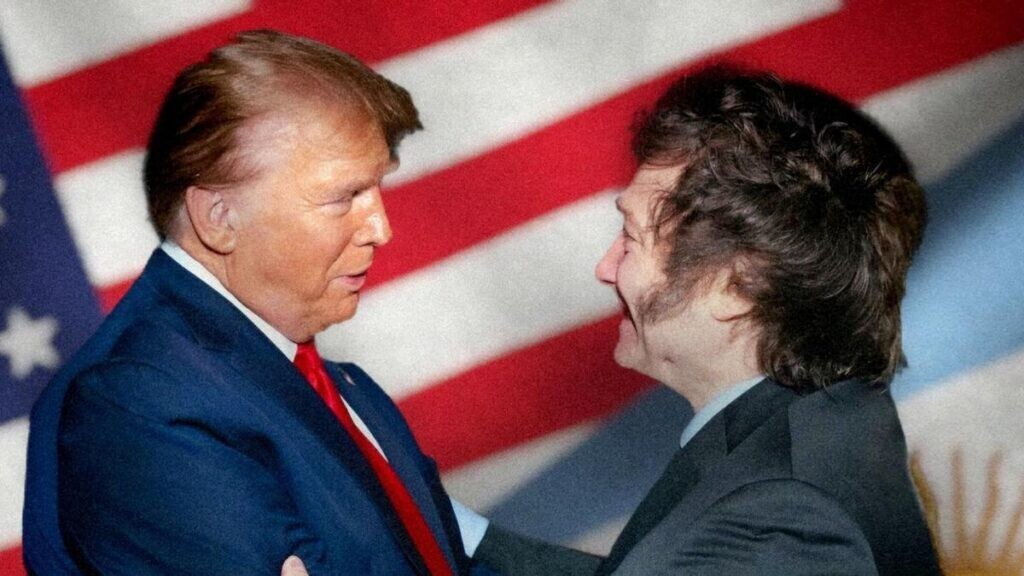
At the same time, some Latin American presidents will lean towards accepting these deportations as part of their negotiation strategy with Trump. This more isolationist vision will align well with Trump's desire to reach agreements with countries that have been considered adversaries of the United States. Therefore, the Venezuelan, Cuban, and Nicaraguan oppositions must work with traditional Republicans, who in the past have demanded firm positions from the United States on the dictatorships of those countries, to try to contain any attempt by the Trump administration to reorient U.S. policy in the region towards a more neutral approach regarding the regime.
The Trump administration will further fuel the narrative that Latin American countries must choose a side in this geopolitical rivalry. Latin American leaders must try to work with them to curb the worst of Trump's policies, or at least redirect the economic war towards Asia as much as possible. The second division is the one that pits neoconservatives against isolationists. In fact, there are at least four clear divisions within this coalition that will impact Latin American policy during Trump's second term.
Latin American leaders did not take long to publicly congratulate the former U.S. president and now president-elect Donald Trump for his electoral victory last week. Lula and Petro, who have wagered some international political capital on their criticisms of the fraudulent elections in Venezuela earlier this year, must decide how far they are willing to go to oppose the Trump administration if it changes U.S. policy there or if it is strategically convenient for them to change positions to avoid being trapped on the wrong side of Trump’s team.
The third division is related to the second but focuses more on security issues than on promoting democracy. Trump has promised to increase tariffs and close the border between the United States and Mexico, a combination that threatens to create massive inflation and disruptions in supply chains while reducing exports from Latin America to the United States, even for countries that have free trade agreements. Agreements with Trump and cooperation with other factions of the Republican Party that may help counter the most damaging parts of his agenda are necessary to navigate the next four years.
At that time, the leaders and countries that managed Trump best were those who recognized that he is a transactional president. This security issue could divide not only Trump's coalition but also Latin America, with several countries taking opposing sides in the divisions within the Republican Party.
The fourth division is between anti-immigrant populists and the growing Latino vote within the Republican Party. Convincing Trump that the best thing for his political interests is to limit these deportations now that he is back in office safe and sound might be a strategy. American business leaders who supported Trump's election recognize the downsides of these policies and the economic harm they will cause. Many Republicans have promised, with some bravado, to start launching U.S. military strikes against drug cartels south of the U.S. border, and in the week since his election, Trump has reiterated his plans to take the war on drugs to the drug traffickers in Latin America. But maintaining this freedom of maneuver could come at a cost in terms of tensions with the Trump administration and possibly even retaliation.
Finally, Latin American leaders must remember that this is just part of the ebb and flow of democracy, the same phenomenon that they – at least those elected democratically – face in their own countries. But the majority coalition that elected Trump is not completely unified. At the same time, the isolationist wing of the Republican Party wants to avoid foreign military entanglements and may align with many in Latin America who are concerned about the region's sovereignty. The Republican business community and Trump – who calls himself the "tariff man" – see their trade war as a way to counter China. China will continue to court Latin America, and Beijing's position could be strengthened if the Trump administration pressures the region too much on some of the other fronts, such as trade and immigration.
At the same time, any shift towards China could bring threats of retaliation from the United States. In fact, there are at least four clear divisions within that coalition that will impact the second Trump administration's policy toward Latin America. The first division is between protectionists and the business community. Reaching an agreement with Trump will be a completely different exercise than the last four years of working to promote national interests with outgoing President Joe Biden, where ideology and commitment to democracy played a more significant role.
In addition to preparing for Trump's transactional approach – a characteristic of his foreign policy that is now almost a widely held opinion – the other task facing Latin American leaders is to identify allies within the Republican Party who are more willing and capable of helping them advance their agenda. Trump will be the president of the United States for the next four years, but the country's voters will lean toward other politicians and political ideas at some point in the next decade. The coalition that elected Trump is not fully unified. It has two decades of experience in analyzing policy, economy, and security in Latin America and the Caribbean. The more extreme factions of the party have discussed policies that could strip citizenship from naturalized U.S. citizens born abroad.
And Colombian President Gustavo Petro, in congratulating Trump, called for the Global South to unite on issues like climate change in preparation for a second Trump presidency. But Petro's caution was the furthest anyone was willing to go in criticizing Trump in the early hours following his victory. The rise of security populism, embodied by El Salvador's President Nayib Bukele, has created greater demand for more aggressive actions against gangs and cartels driving insecurity. Trump has promised a logistically impossible deportation of everyone who has illegal emigrated to the United States.
Throughout the region, all leaders seemed eager to avoid a public dispute with the incoming administration while waiting for the new president’s first political decisions. Privately, advisors to those same leaders likely pulled out their copies of "The Art of the Deal," the 1987 book based on Trump’s business ideas that many had already dismissed during his first term from 2017 to 2021. Latin America will resist that pressure because almost all countries benefit from working with both China and the United States, although ties with both countries help protect against any disadvantageous policy implemented by either.
In this regard, the region will not maintain a unified hardline against U.S. deportation policy either, as the issue represents an opportunity for some countries to improve their bargaining positions on other issues on the economic or security agenda. Despite all these divisions, Latin American leaders must recognize the one issue on which opposing sides of all the divisions within Trump's coalition agree: the perceived threat that China poses to the United States. Brazilian President Luiz Inácio Lula da Silva, who just days before had declared his support for Trump’s opponent, Vice President Kamala Harris, emphasized the importance of respecting the democratic outcomes of elections.
As for the federal government, Republicans will control both chambers of Congress, the Supreme Court, and the presidency, while the Democratic Party will be licking its wounds in the desert for at least the next two years until the midterm elections. Latin America will largely reject the social and economic costs, as well as the potential humanitarian disaster, that this type of massive deportation would bring. Mexican President Claudia Sheinbaum has no interest in U.S. military attacks on her country’s territory, but some leaders and citizens of Latin America may be surprisingly open to greater U.S. involvement on this front.
The traditional Republican establishment of foreign policy has always had an interest in selectively promoting democracy and countering dictatorships they consider adversarial. Argentine President Javier Milei was exuberant in his praise. The new isolationists, embodied by vice president-elect J.D. Vance, have less interest in foreign affairs in general and, to the extent that they have opinions, prefer to promote U.S. economic interests without regard for the type of regime. Isolationists also think that the rise of China is a threat to U.S. interests.
But long-term interests and geography make it essential for regional leaders not to put all their eggs in one basket, as the pendulum will swing back in Washington very soon. No political change is permanent. James Bosworth is the founder of Hxagon, a firm that conducts political risk analysis and custom research in emerging and frontier markets.











